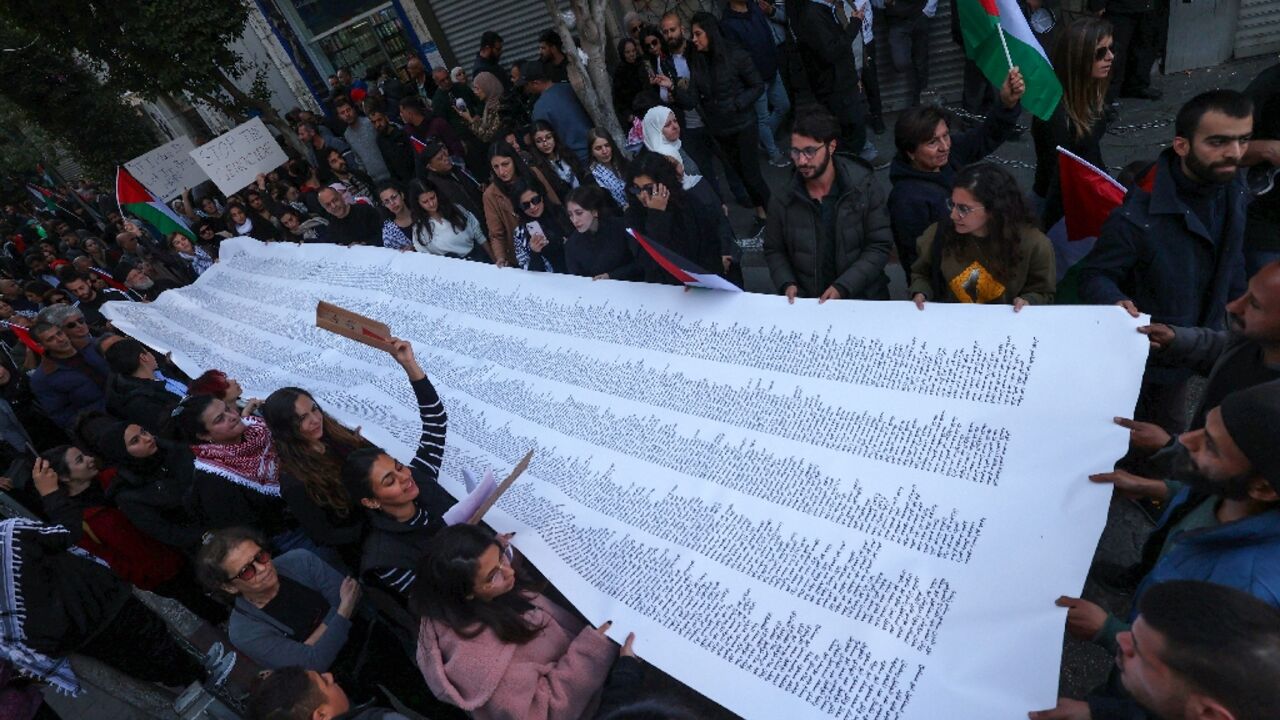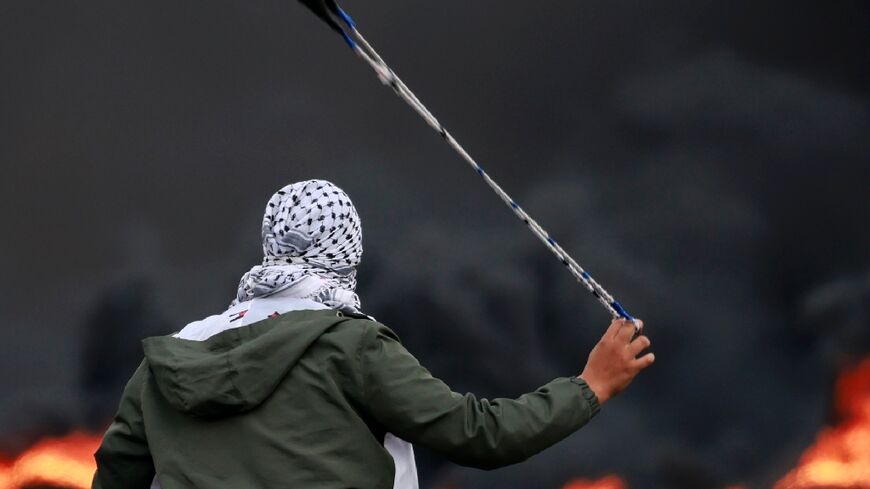Palestinians shut shops, schools in protest at Gaza onslaught

Shops, schools and government offices shut in the occupied West Bank, annexed east Jerusalem and allied countries Monday as Palestinians staged a general strike protesting against Israel's relentless onslaught in Gaza.
The bloodiest ever war in the Gaza Strip has killed more than 18,200 Palestinians in the territory, mostly women and children, as well as 104 Israeli soldiers, according to the latest reported death tolls.
Activists called the day-long strike covering businesses, public workers and education in solidarity with the besieged coastal strip, with rallies held in the West Bank.
Essam Abu Baker, who coordinates Palestinian factions in Ramallah, called the protest part of a global effort to put pressure on Israel to stop the war.
In Lebanon, public institutions, banks, schools and universities closed after the government decided on a nationwide strike in support of Gaza and border areas in the south, which have seen intensifying exchanges of fire, mainly between Israel and Hezbollah.
In Jordan, shops and restaurants closed in the capital Amman, in Zarqa to the northeast and in Irbid in the north. Usually packed roads were empty.
Jordanian businesses displayed banners and stickers on closed shopfronts with slogans including "I strike for Gaza", and "Ceasefire in Gaza and an end of this genocide".
"This is the least we can do for their bloodshed day and night. We must strike to end this injustice for people in Gaza," some signs read.
The stoppage was also observed in Istanbul's western Esenyurt district, where many businesses are owned by residents from the Palestinian territories, Syria, Yemen and Iran.
- List of names -
Footage on Turkish social media showed deserted streets and Palestinian flags billowing.
"The strike today is not only in solidarity with Gaza, but also against the USA which used its veto in the Security Council against a truce," Abu Baker said in Ramallah, referring to the US rejection of a ceasefire resolution on Friday.
Overnight in Gaza, more Israeli air strikes targeted the biggest southern city of Khan Yunis, while deadly fighting and bombing were also reported in the centre and north of the narrow territory.
Hamas, which triggered the war with its October 7 attacks in which 1,200 people were killed in southern Israel, warned that the remaining 137 hostages held in Gaza would not survive the conflict unless Israel met its demands and freed more Palestinian prisoners.
At a rally in Ramallah, seat of the Palestinian Authority, demonstrators unfurled a huge list of names of the victims in Gaza.
Whole families came out to protest, with parents carrying children on their shoulders.
"All we can do is take part," an elderly man in the crowd told AFP. "We don't have anything else."
AFP photographers also saw the work stoppage being observed in the northern West Bank city of Nablus and Hebron in the south, where another rally was held.
In east Jerusalem's Old City, many shops were closed. The sound of keys echoed in the bazaar as Palestinian business owners locked their brightly painted doors.
- 'I have no choice' -
"We want the war to stop," said Nasser, a 65-year-old coffee shop owner who gave only his first name. He has not heard from friends in war-torn Gaza for weeks, and doesn't know if they are dead or alive.
He said he had little to lose by closing his shop along the Via Dolorosa, a Christian pilgrimage route.
"We've had no business anyway since the war started," he said, after the outbreak of violence prompted visitor numbers to plummet.
The few shopkeepers who did open said they had strong reasons for doing so.
Florist Raja Salama, 62, came to work to prepare wreaths of white roses for an elderly relative's funeral.
"I'm only open because the funeral is today," he said. "When I've taken the flowers over, I'll close."
Others were desperate for business.
"I need to work to feed my baby son," said a young Palestinian barber.
He did not give his name, explaining that he was ashamed to open his shop in the Old City.
"I should respect the strike, but I have no choice. I have a one-year-old at home and I haven't had work since the start of the war. That's the ugly truth."






